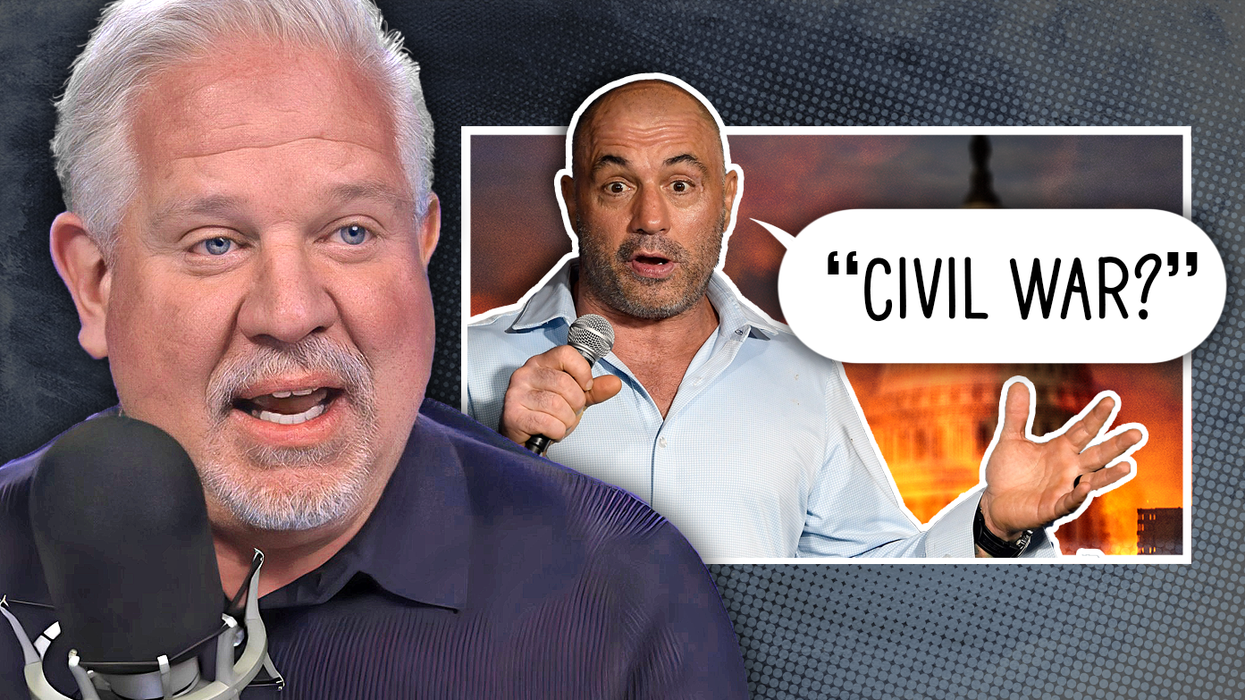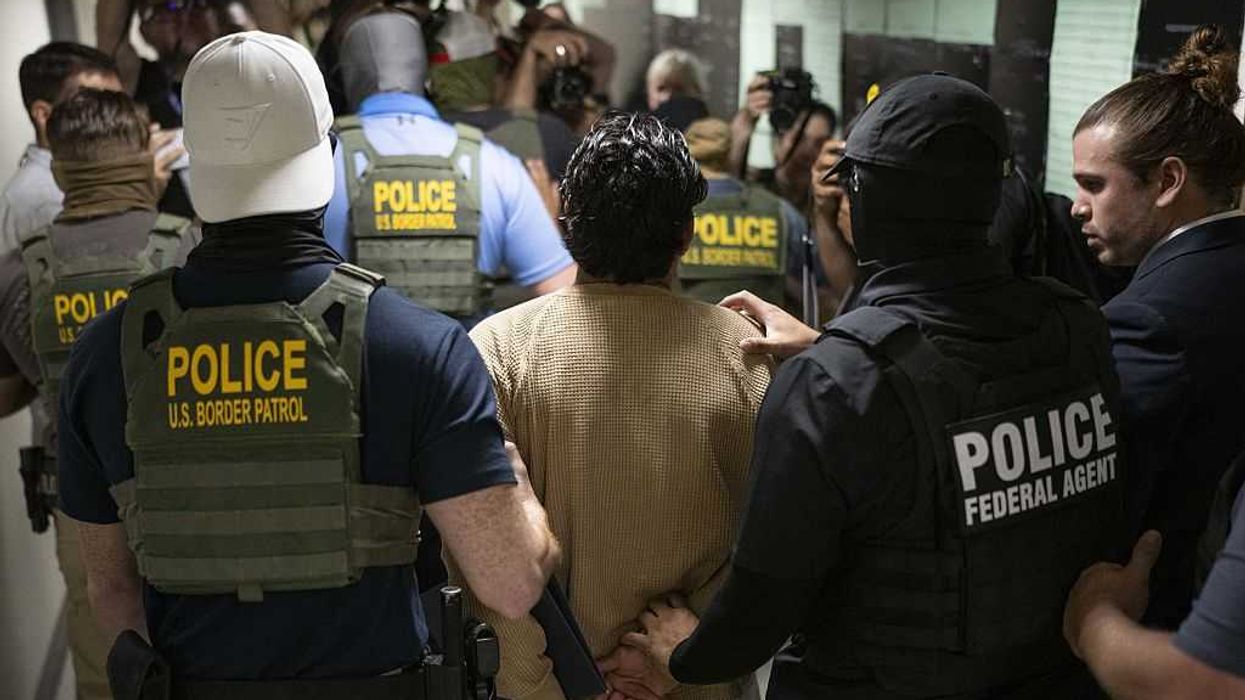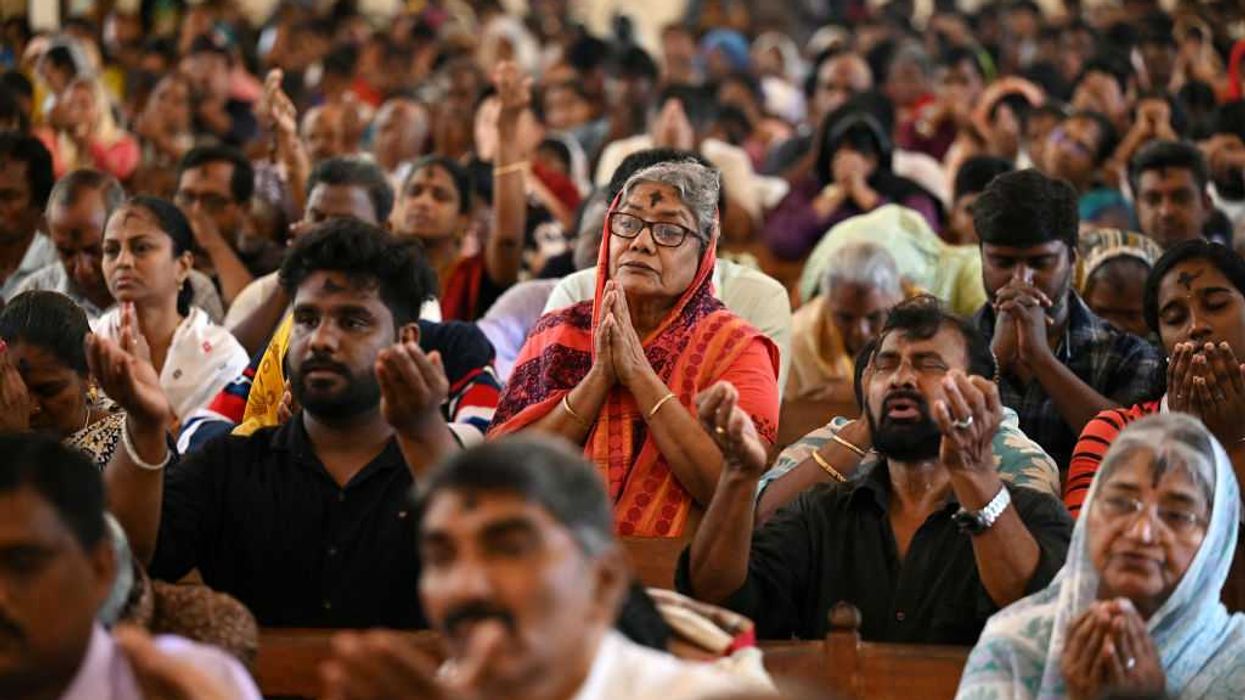 Runners react near Kenmore Square after two bombs exploded during the 117th Boston Marathon on April 15, 2013 in Boston, Massachusetts. Two people are confirmed dead and at least 23 injured after two explosions went off near the finish line to the marathon. (Photo: Alex Trautwig/Getty Images)
Runners react near Kenmore Square after two bombs exploded during the 117th Boston Marathon on April 15, 2013 in Boston, Massachusetts. Two people are confirmed dead and at least 23 injured after two explosions went off near the finish line to the marathon. (Photo: Alex Trautwig/Getty Images)
After the bombing of the Boston Marathon Monday there were rumors that cellphone service in the area had been suspended by providers. It was later revealed that the sheer volume of calls slowed service to a point where it might have seemed to be shut off. But it still raises the question of if authorities can -- and should -- suspend wireless service in an emergency.
Shortly after the two explosions on April 15, the Associated Press first reported a law enforcement official, citing an intelligence briefing, saying cellphone service had been shut down Monday in the Boston area to prevent any potential remote detonations of explosives. But later AP updated the story after speaking with cellphone providers who said no such request had been made and service continued to remain open.
Sprint spokeswoman Crystal Davis said: "Minus some mild call blocking on our Boston network due to increased traffic, our service is operating normally."
If authorities had wanted to shut of cell service in the area temporarily after the bombings as a public safety measure though, could they -- and should they?
 People rush out of the way on the corner of Stuart and Dartmouth St., near the finish line after two bombs exploded during the 117th Boston Marathon on April 15, 2013 in Boston, Massachusetts. Two people are confirmed dead and at least 28 injured after at least two explosions went off near the finish line to the marathon. (Photo: Darren McCollester/Getty Images)
People rush out of the way on the corner of Stuart and Dartmouth St., near the finish line after two bombs exploded during the 117th Boston Marathon on April 15, 2013 in Boston, Massachusetts. Two people are confirmed dead and at least 28 injured after at least two explosions went off near the finish line to the marathon. (Photo: Darren McCollester/Getty Images)
As Mike DiMarco, the director of media at the digital design agency FiddleFly Inc., which focuses on mobile, told TheBlaze in an email that given society's dependence on cellphones, people are likely to become upset if service was ever suspended.
"Mobile's power to connect us to everything, and be the first outlet to solve our problems and keep us safe, have made these devices a sort of home for us that we feel intruded upon when any interruption occurs," DiMarco wrote. "This is why when something like the Boston bombing occurs, many people become flustered when any aspect of their mobile capabilities are interrupted."
Although those in the city might have had a hard time getting through due to the volume of cell traffic, DiMarco pointed out how many took to other outlets offered by mobile devices -- email, Twitter, Web, texting, etc. -- to find family and friends and help those in need.
 Runners react near Kenmore Square after two bombs exploded during the 117th Boston Marathon on April 15, 2013 in Boston, Massachusetts. Two people are confirmed dead and at least 23 injured after two explosions went off near the finish line to the marathon. (Photo: Alex Trautwig/Getty Images)
Runners react near Kenmore Square after two bombs exploded during the 117th Boston Marathon on April 15, 2013 in Boston, Massachusetts. Two people are confirmed dead and at least 23 injured after two explosions went off near the finish line to the marathon. (Photo: Alex Trautwig/Getty Images)
There have been occasions in the past though when cell service has officially suspended in the name of safety.
After the 2005 bombing in London, cell service was shut down in New York transit tunnels -- a decision that was later criticized. The San Francisco Bay Area Rapid Transit (BART) system also controversially shut off cell service to stifle a protest in 2011. It later released an updated policy that allowed police to suspend service in situations where BART “…determines that there is strong evidence of imminent unlawful activity that threatens the safety of District passengers, employees and other members of the public…”. Using cellphones as an instrument for explosives was an example of such a situation.
The Federal Communications Commission launched an investigation into BART's actions and sought public comment in 2012 as to what people thought about government officials asking service providers to stop service for public safety.
"Our democracy, our society, and our safety all require communications networks that are available and open," FCC Chairman Julius Genachowski said in a statement at the time. "Any interruption of wireless services raises serious legal and policy issues, and must meet a very high bar. The FCC, as the agency with oversight of our communications networks, is committed to preserving their availability and openness, and to harnessing communications technologies to protect the public."
In response to the FCC's request for comment, the advocacy group Center for Democracy and Technology called attention to the Standard Operating Procedure 303, which was approved in 2006 with details the CDT calls "secret." CDT, in a statement in 2012, called the SOP 303 Emergency Wireless Protocols (EWP) "flatly unconstitutional."
"As summarized in a report by the National Security Telecommunications Advisory Committee ("NSTAC"), SOP 303 provides that State Homeland Security Advisors are empowered to decide whether or not to terminate wireless service, whether in a localized area or 'within an entire metropolitan area,' and those decisions are approved and relayed to service providers not by the courts but by the Department of Homeland Security's National Coordinating Center for Telecommunications ("NCC"). There is no provision for any judicial review, whether before or after the service interruption, and certainly no provision for notice and opportunity to challenge for affected cell phone users," CDT said in a statement.
"This state of affairs cannot be allowed to stand. The government should not have the secret, unchecked authority to turn off the networks through which we all communicate every day," CDT continued.
Just this year, a bill was introduced that would ban BART and other government agencies in California from suspending cell service as their new policy suggested. The San Francisco Gate has more on the bill introduced in January:
The bill, SB1160 by Sen. Alex Padilla, D-Pacoima (Los Angeles County), was approved in a unanimous bipartisan vote of a Senate committee Tuesday and faces further committee hearings.
Padilla said the BART incident, when officials shut off underground cell service for three hours from Balboa Park Station to the Transbay Tube, raised free-speech concerns for him and led to introduction of the bill.
"Honestly, when the BART incident was brought to my attention, it raised questions and significant concerns of 'How could they do that?' " he said.
Such a shutdown for landline telephone networks already requires a court order, and Padilla said he wants the law to reflect the realities of new technology.
Although some might be completely willing to allow cell service suspension for safety purposes, national security expert Buck Sexton cautioned in a commentary piece for TheBlaze that in discussions that will emerge from this tragedy "we must resist the temptation to trade liberties for the perception of security."
The Associated Press contributed to this report.

 Runners react near Kenmore Square after two bombs exploded during the 117th Boston Marathon on April 15, 2013 in Boston, Massachusetts. Two people are confirmed dead and at least 23 injured after two explosions went off near the finish line to the marathon. (Photo: Alex Trautwig/Getty Images)
Runners react near Kenmore Square after two bombs exploded during the 117th Boston Marathon on April 15, 2013 in Boston, Massachusetts. Two people are confirmed dead and at least 23 injured after two explosions went off near the finish line to the marathon. (Photo: Alex Trautwig/Getty Images)





